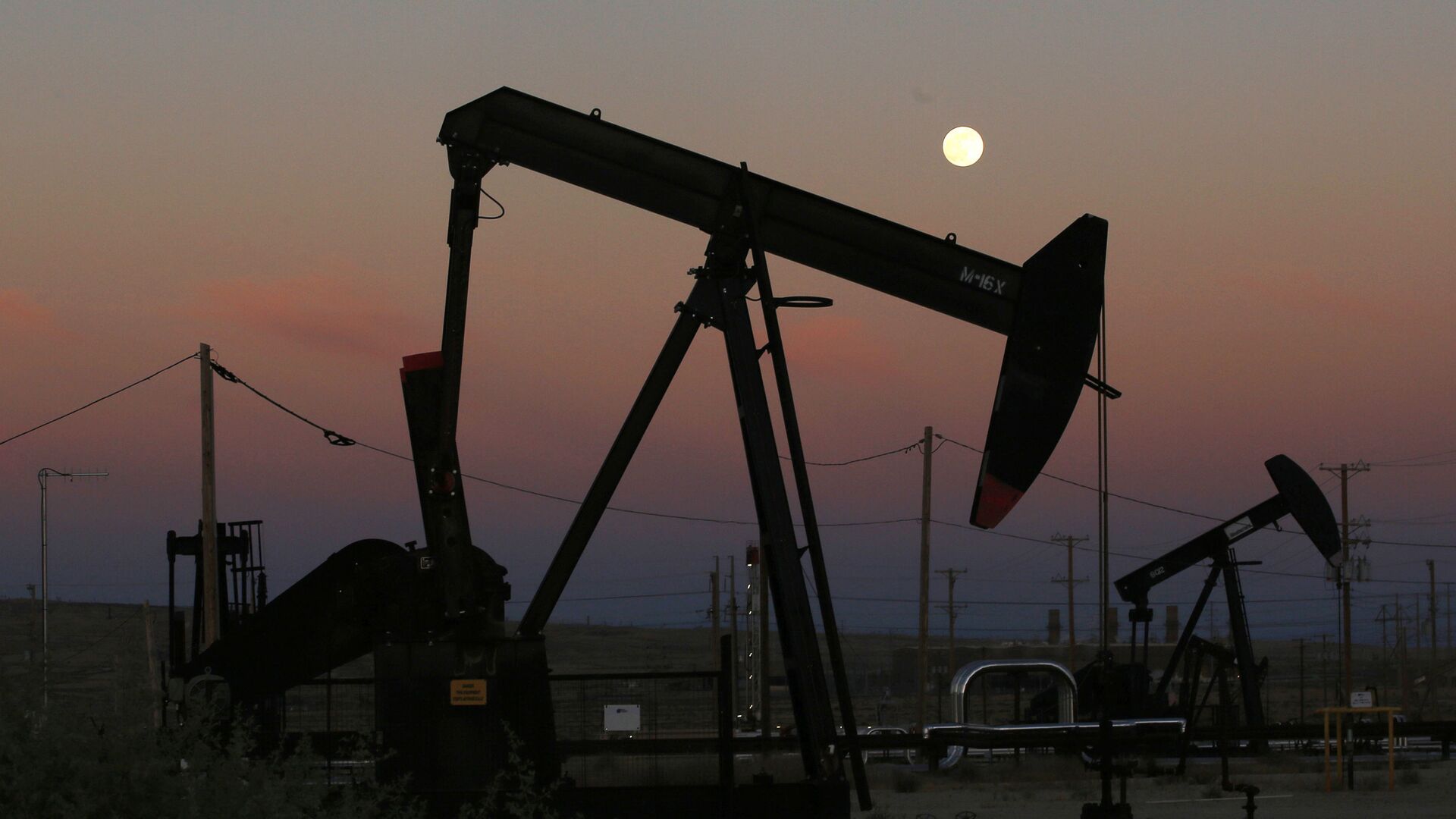https://sputnikglobe.com/20231012/1973-oil-embargo-unlikely-but-crude-prices-may-skyrocket-amid-israel-hamas-war-1114132560.html
1973 Oil Embargo Unlikely, But Crude Prices May Skyrocket Amid Israel-Hamas War
1973 Oil Embargo Unlikely, But Crude Prices May Skyrocket Amid Israel-Hamas War
Sputnik International
The surprise attack by Hamas on Israeli cities that coincided with the 50th anniversary of the Yom Kippur War has evoked strong memories of the 1973 conflict and subsequent energy crisis. Will history repeat itself?
2023-10-12T11:05+0000
2023-10-12T11:05+0000
2023-10-12T11:05+0000
economy
israel
oil
oil prices
middle east
joe biden
golda meir
iran
hamas
islamic revolutionary guard corps (irgc)
https://cdn1.img.sputnikglobe.com/img/107878/82/1078788220_0:52:3000:1740_1920x0_80_0_0_65dc9d3f2dcfdec1e955f16b93bb92c7.jpg
The international press has already drawn the parallels between October 2023 and October 1973, wondering whether oil prices will skyrocket over the Israel-Hamas conflict.Fifty years ago, on October 6, 1973, Syria and Egypt simultaneously attacked Israel on two fronts in order to retake the Golan Heights and the Sinai Peninsula from the Jewish state after losing the territories in the course of the Six Day War (Third Israeli-Arab War).Israeli Prime Minister Golda Meir turned to the United States for aid, while Syria and Egypt requested help from the USSR. Given that the Middle East conflict occurred amid the Cold War, the confrontation quickly turned into a great power rivalry. US President Richard Nixon authorized a supply line to Israel which prompted the Organization of Arab Petroleum Exporting Countries (OAPEC), led by King Faisal of Saudi Arabia, to slap an oil embargo on those supporting the Jewish state on October 17, 1973. As a result, the price of oil jumped nearly 350% between 1973 and 1974, sending shivers through the world's economy. Will we see the same picture in the future?The world is far from the 1973 situation today, agreed Dr. Mamdouh G. Salameh, an international oil economist and global energy expert, expressing doubt that the conflict between Hamas and Israel will widen to involve major powers in the Middle East.Another reason why a repeat of the 1973 crisis appears to be virtually impossible is that the major powers which were involved in the Yom Kippur War "are out of it," according to Salameh. He drew attention to the fact that Egypt has a peace treaty with Israel; Syria is exhausted by its 12-year civil war; and Gulf oil producers, including Saudi Arabia and the United Arab Emirates, don't seem to be interested in considerably slashing the oil flow or getting involved in the Israeli-Hamas conflict. Salameh continued on by saying that Iran and Lebanon are also not likely to enter a war with Israel. Despite Hezbollah militant groups reportedly launching some attacks on Israeli territory, they are unlikely to get engaged in an all-out war with the Jewish state.The UAE and Bahrain, which normalized relations with Israel under the Abraham Accords in 2020, have condemned the October 7 attacks by Hamas on Israeli civilians and called for de-escalation. The UAE was the first Gulf state to lash out at Hamas in an official statement, while Bahrain initially avoided mentioning the Palestinian militant group. Nonetheless, on Monday, Manama stated that "attacks launched by Hamas constitute a dangerous escalation." Morocco signaled "deep concern" and denounced attacks on civilians "wherever they are."Saudi Arabia, which was on the path towards normalization with Israel in September, is said to have pushed a pause button on the process. Saudi Crown Prince Mohammed bin Salman signaled solidarity with the Palestinians and their decades-long grievances. "The kingdom will continue to stand by the Palestinian nation in its quest for its legitimate rights," the crown prince told Palestinian Authority President Mahmoud Abbas in a phone conversation on Tuesday, as quoted by the press. Riyadh has called for an "immediate cessation of violence." Egypt and Turkiye urged the warring parties to exercise "maximum restraint" and avoid "exposing civilians to further danger."Israel-Hamas Conflict May Add to Already Rising Oil PricesOn Monday, crude prices temporarily went up 4.2% to $88.15 per barrel over Israel’s conflict with Hamas, but then fell 0.74% to $87.50 by noon on Tuesday."It is natural for the oil and energy markets to get nervous whenever there is an escalation of tension or fighting anywhere in the Middle East," Salameh told Sputnik. "The reason is that the Middle East, particularly the Gulf region, is home to more than 60% of the global proven oil reserves and 48% of the proven gas reserves. Whenever there is trouble, there is always a potential risk of supply disruptions."At the same time, the Iraqi prime minister pointed to the fact that the upward trend of oil prices started to take shape earlier this year. Given this, the Middle East conflict could potentially facilitate the already emerging hike.How Israel-Hamas Conflict Could Spiral Out of ControlHowever, international observers have expressed concern that the unfolding conflict could turn "ugly" for the global market if the Israel-Hamas conflict spills over into other countries of the region.Their concerns don't seem entirely groundless, given that the US has not only pledged military aid to Israel, but is dispatching military forces to the region. The USS Gerald R. Ford Carrier Strike Group and US air power have already arrived in the Eastern Mediterranean. The USS Dwight D. Eisenhower and accompanying warships may join the US naval group in around two weeks.The UK could follow Washington's suit and send Royal Navy ships and warplanes to the region, too, according to the British press, quoting Lord Alan West, former First Sea Lord. Per West, the UK has maintained a substantial military presence in the Mideast region, allowing it to react fast.To complicate matters further, some US members of Congress and policymakers have publicly accused Iran of involvement in Hamas’ surprise attack and called for a military option against Tehran. On October 8, one US mainstream news outlet claimed that the Islamic Revolutionary Guard Corps (IRGC) had helped plot Hamas’ assault, but presented no evidence to back the allegations.On October 11, another American media outlet said the US intelligence community had obtained "exquisite" data indicating that the Iranian leadership was caught off guard by the Hamas attack. Biden administration officials said that there is no evidence of Tehran's involvement in the Palestinian group's strike. Nonetheless, National Security Advisor Jake Sullivan hinted that US spies are continuing to seek information regarding Iran's "possible involvement."Possible US Attempt to Pin Blame on Iran Will BackfireSome political commentators say that Washington is not interested in using this ambiguous situation to start a confrontation with Iran – and it's not because US neocons in the Biden administration are dragging their feet: the major reason is that American politicians regard China as a more important target.On the other hand, given that the US is already arming Ukraine, Taiwan, and now Israel, Washington risks completely exhausting its military stockpiles and overstretching itself, as US security experts told Sputnik.Meanwhile, US observers don't rule out Team Biden slapping new sanctions on Tehran over Hamas’ attack in an attempt to divert the public's attention from Washington's intelligence failure to predict the October 7 assault. However, new restrictions may wipe away the Iranian share of oil from the world market, which could in turn facilitate rising oil prices, they say. What's worse, this could have a boomerang effect on the US. The spike in oil prices could add to inflation and create further difficulties for the US economy and the American people, according to Salameh."The US economy has been suffering from inflation for quite a while," he said. "Moreover, its economic growth has been anemic and it is projected to grow this year at an estimated 1.8%-2.0% and only by 0.4% in 2024, according to the International Monetary Fund (IMF). Any further oil price rises could make inflation worse and growth weaker as a result of hikes in the interest rates."
https://sputnikglobe.com/20231011/global-oil-market-now-balanced-situation-constantly-changing-1114112512.html
https://sputnikglobe.com/20231006/iran-uae-can-become-global-economic-center-thanks-to-brics-1113973543.html
https://sputnikglobe.com/20231012/saudi-arabia-plans-to-continue-voluntary-oil-output-cuts-as-long-as-necessary-1114124415.html
https://sputnikglobe.com/20231011/why-us-warship-deployment-nearby-israel-spells-escalation-risks-1114110822.html
https://sputnikglobe.com/20231009/iran-sudan-agree-to-resume-diplomatic-ties-reopen-embassies-1114049222.html
israel
iran
palestine
Sputnik International
feedback@sputniknews.com
+74956456601
MIA „Rossiya Segodnya“
2023
News
en_EN
Sputnik International
feedback@sputniknews.com
+74956456601
MIA „Rossiya Segodnya“
Sputnik International
feedback@sputniknews.com
+74956456601
MIA „Rossiya Segodnya“
israel-hamas war, yom kippur war of 1973, 1973 oil embargo, hamas, us military aid israel, us navy eastern mediterranean, uk navy, opec, opec+, saudi arabia, bahrain, morocco, egypt, abraham accords, oil prices, iran, escalation in the middle east, hezbollah
israel-hamas war, yom kippur war of 1973, 1973 oil embargo, hamas, us military aid israel, us navy eastern mediterranean, uk navy, opec, opec+, saudi arabia, bahrain, morocco, egypt, abraham accords, oil prices, iran, escalation in the middle east, hezbollah
1973 Oil Embargo Unlikely, But Crude Prices May Skyrocket Amid Israel-Hamas War
The surprise attack by Hamas on Israeli cities that coincided with the 50th anniversary of the Yom Kippur War has evoked strong memories of the 1973 conflict and subsequent energy crisis. Will history repeat itself?
The international press has already drawn the parallels between October 2023 and October 1973, wondering whether oil prices will skyrocket over the Israel-Hamas conflict.
Fifty years ago, on October 6, 1973, Syria and Egypt simultaneously attacked Israel on two fronts in order to retake the Golan Heights and the Sinai Peninsula from the Jewish state after losing the territories in the course of the Six Day War (Third Israeli-Arab War).
Israeli Prime Minister Golda Meir turned to the United States for aid, while Syria and Egypt requested help from the USSR. Given that the Middle East conflict occurred amid the Cold War, the confrontation quickly turned into a great power rivalry. US President Richard Nixon authorized a supply line to Israel which prompted the Organization of Arab Petroleum Exporting Countries (OAPEC), led by King Faisal of Saudi Arabia, to slap an oil embargo on those supporting the Jewish state on October 17, 1973. As a result, the price of oil jumped nearly 350% between 1973 and 1974, sending shivers through the world's economy. Will we see the same picture in the future?
"There's now this outbreak of war again, but it's totally different from 1973," former Austrian Foreign Minister Karen Kneissl told Sputnik. "We then had two armies, the Egyptian and Syrian armies, that went to war against Israel, which was then helped for the first time officially by the United States, with ammunition and oil. And then we had an embargo by oil producers to not anymore deliver oil to certain countries. What happened was that the oil price went up by four times in three weeks. So it was then $3, it went up to $12 in three weeks. The lessons drawn from 1973 were to create stocks, so countries are not facing a total loss of oil all of a sudden. But I don't think that we will see a replay of the 1973 crisis. We already see a rise in oil prices, but it's limited."
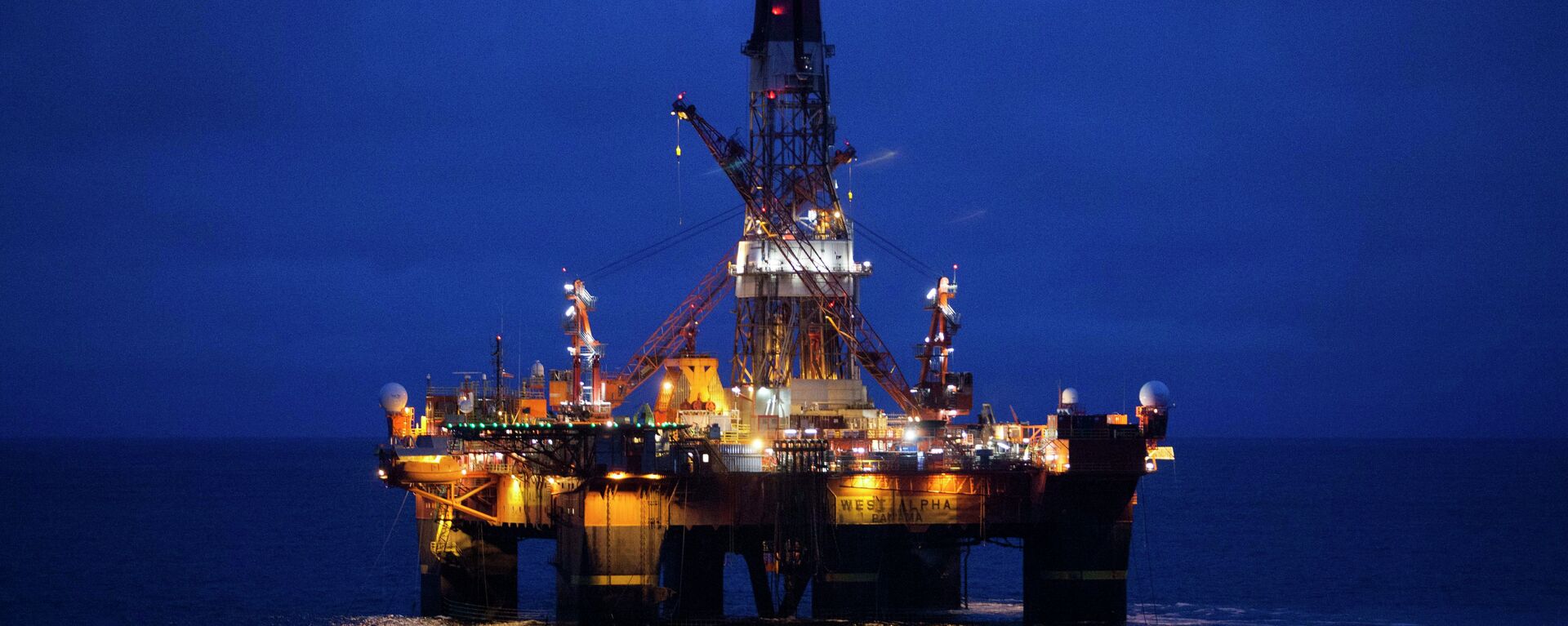
11 October 2023, 18:25 GMT
The world is far from the 1973 situation today, agreed Dr. Mamdouh G. Salameh, an international oil economist and global energy expert, expressing doubt that the conflict between Hamas and Israel will widen to involve major powers in the Middle East.
"Therefore, the threats for the oil and energy markets are minimal, though prices will get a war premium," the oil expert continued.
Another reason why a repeat of the 1973 crisis appears to be virtually impossible is that the major powers which were involved in the Yom Kippur War "are out of it," according to Salameh. He drew attention to the fact that Egypt has a peace treaty with Israel; Syria is exhausted by its 12-year civil war; and Gulf oil producers, including Saudi Arabia and the United Arab Emirates, don't seem to be interested in considerably slashing the oil flow or getting involved in the Israeli-Hamas conflict. Salameh continued on by saying that Iran and Lebanon are also not likely to enter a war with Israel. Despite Hezbollah militant groups reportedly launching some attacks on Israeli territory, they are unlikely to get engaged in an all-out war with the Jewish state.

6 October 2023, 05:10 GMT
The UAE and Bahrain, which normalized relations with Israel under the Abraham Accords in 2020, have condemned the October 7 attacks by Hamas on Israeli civilians and called for de-escalation. The UAE was the first Gulf state to lash out at Hamas in an official statement, while Bahrain initially avoided mentioning the Palestinian militant group. Nonetheless, on Monday, Manama stated that "attacks launched by Hamas constitute a dangerous escalation." Morocco signaled "deep concern" and denounced attacks on civilians "wherever they are."
Saudi Arabia, which was on the path towards normalization with Israel in September, is said to have pushed a pause button on the process. Saudi Crown Prince Mohammed bin Salman signaled solidarity with the Palestinians and their decades-long grievances. "The kingdom will continue to stand by the Palestinian nation in its quest for its legitimate rights," the crown prince told Palestinian Authority President Mahmoud Abbas in a phone conversation on Tuesday, as quoted by the press. Riyadh has called for an "immediate cessation of violence." Egypt and Turkiye urged the warring parties to exercise "maximum restraint" and avoid "exposing civilians to further danger."
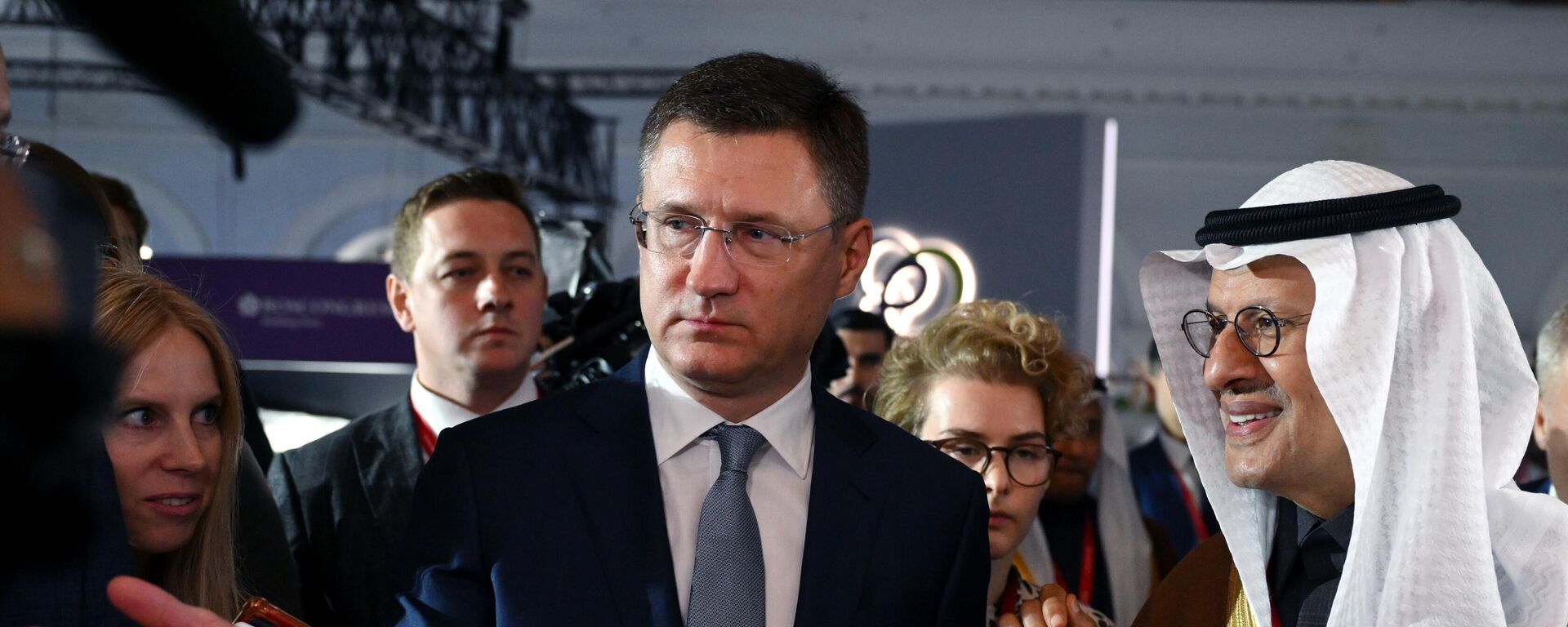
12 October 2023, 10:39 GMT
Israel-Hamas Conflict May Add to Already Rising Oil Prices
On Monday, crude prices temporarily went up 4.2% to $88.15 per barrel over Israel’s conflict with Hamas, but then fell 0.74% to $87.50 by noon on Tuesday.
"It is natural for the oil and energy markets to get nervous whenever there is an escalation of tension or fighting anywhere in the Middle East," Salameh told Sputnik. "The reason is that the Middle East, particularly the Gulf region, is home to more than 60% of the global proven oil reserves and 48% of the proven gas reserves. Whenever there is trouble, there is always a potential risk of supply disruptions."
Iraqi Prime Minister Mohammed Shia al-Sudani, however, expressed concerns about the unfolding conflict: "Energy supplies are under threat and may be cut off. Our region is very sensitive to this," he said on Wednesday at a plenary session of Russian Energy Week 2023 in Moscow.
At the same time, the Iraqi prime minister pointed to the fact that the upward trend of oil prices started to take shape earlier this year. Given this, the Middle East conflict could potentially facilitate the already emerging hike.
"The coordination mechanism approved by OPEC+ helped stabilize the market and prevent it from failing," Prime Minister al-Sudani said. "Therefore, we will undoubtedly comply with any agreements reached. This is in the interests of all authors of the oil market. Current market policies will send energy prices up in line with rising consumption. In 2024, oil consumption is expected to rise to 104 million barrels."
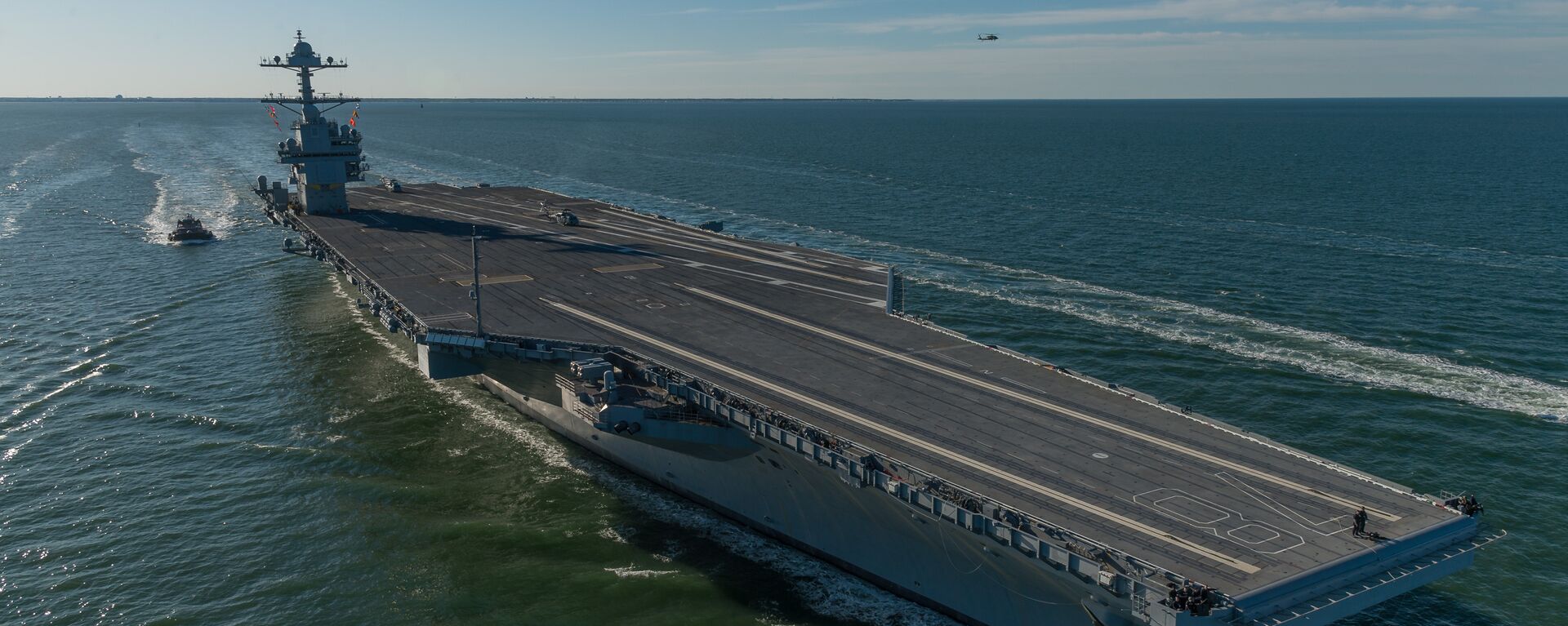
11 October 2023, 17:50 GMT
How Israel-Hamas Conflict Could Spiral Out of Control
However, international observers have expressed concern that the unfolding conflict could turn "ugly" for the global market if the
Israel-Hamas conflict spills over into other countries of the region.
Their concerns don't seem entirely groundless, given that the US has not only pledged military aid to Israel, but is
dispatching military forces to the region. The USS Gerald R. Ford Carrier Strike Group and US air power have already arrived in the Eastern Mediterranean. The USS Dwight D. Eisenhower and accompanying warships may join the US naval group in around two weeks.
The UK could follow Washington's suit and send Royal Navy ships and warplanes to the region, too, according to the British press, quoting Lord Alan West, former First Sea Lord. Per West, the UK has maintained a substantial military presence in the Mideast region, allowing it to react fast.
"Where we have a number of forces [already] is in the Arabian Gulf," West told the UK media. "Based around Bahrain, the American 5th Fleet are there, we’re there, indeed we’ve got our naval base, HMS Jufair. And we’ve got MCM (mine counter measure) forces […] And then we’ve also got replenishment ships, a frigate that’s based there, and so on, so we do have a level of forces there all the time."
To complicate matters further, some US members of Congress and policymakers have publicly accused Iran of involvement in Hamas’ surprise attack and called for a military option against Tehran. On October 8, one US mainstream news outlet claimed that the Islamic Revolutionary Guard Corps (IRGC) had helped plot Hamas’ assault, but presented no evidence to back the allegations.
On October 11, another American media outlet said the US intelligence community had obtained "exquisite" data indicating that the Iranian leadership was caught off guard by the Hamas attack. Biden administration officials said that there is no evidence of Tehran's involvement in the Palestinian group's strike. Nonetheless, National Security Advisor Jake Sullivan hinted that US spies are continuing to seek information regarding Iran's "possible involvement."
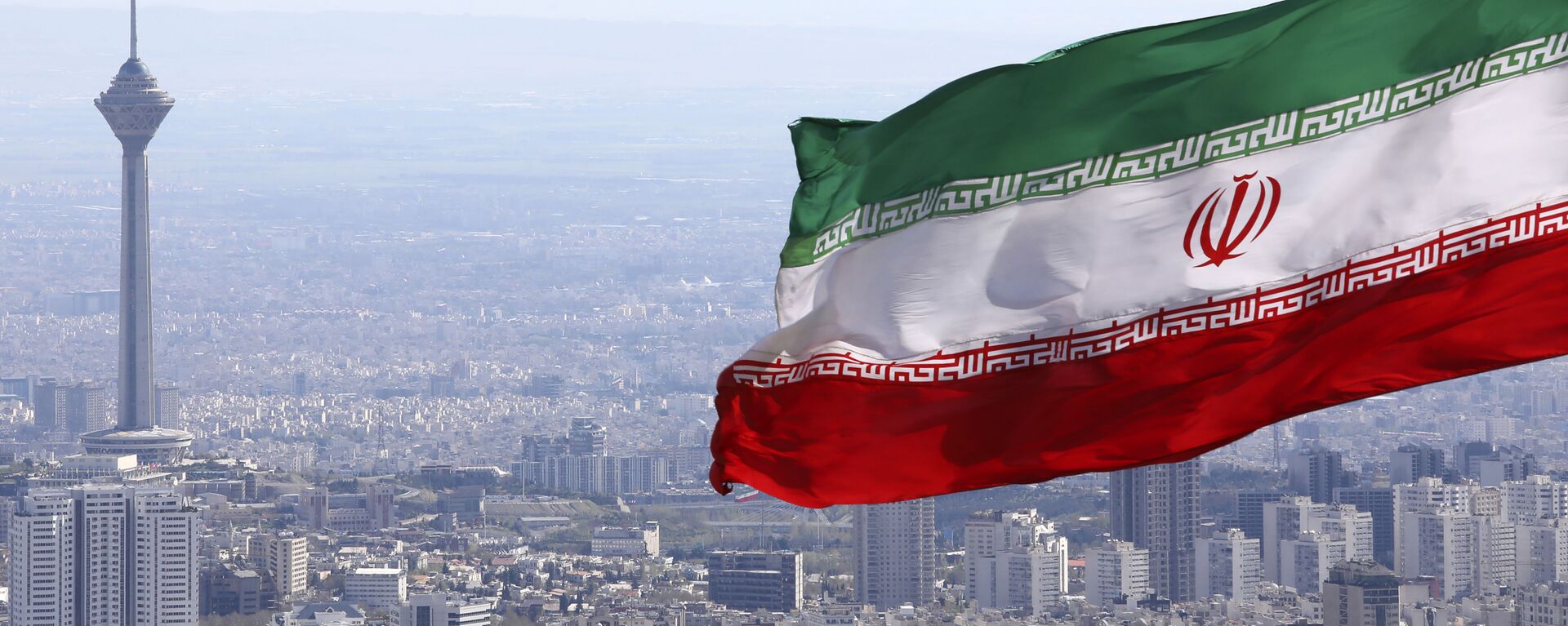
9 October 2023, 18:35 GMT
Possible US Attempt to Pin Blame on Iran Will Backfire
Some political commentators say that Washington is not interested in using this ambiguous situation to start a confrontation with Iran – and it's not because US neocons in the Biden administration are dragging their feet: the major reason is that American politicians regard China as a more important target.
On the other hand, given that the US is already arming Ukraine, Taiwan, and now Israel, Washington risks completely
exhausting its military stockpiles and overstretching itself, as US security experts told
Sputnik.
Meanwhile, US observers don't rule out Team Biden slapping new sanctions on Tehran over Hamas’ attack in an attempt to divert the public's attention from Washington's intelligence failure to predict the October 7 assault. However, new restrictions may wipe away the Iranian share of oil from the world market, which could in turn facilitate rising oil prices, they say. What's worse, this could have a boomerang effect on the US. The spike in oil prices could add to inflation and create further difficulties for the US economy and the American people, according to Salameh.
"The US economy has been suffering from inflation for quite a while," he said. "Moreover, its economic growth has been anemic and it is projected to grow this year at an estimated 1.8%-2.0% and only by 0.4% in 2024, according to the International Monetary Fund (IMF). Any further oil price rises could make inflation worse and growth weaker as a result of hikes in the interest rates."
"American consumers will be adversely affected from rising gasoline and diesel prices thus reducing their purchasing power and raising the level of inflation. This means that the economy will be short of liquidity and its growth rates will hover at the bottom with less employment opportunities," the oil expert concluded.
